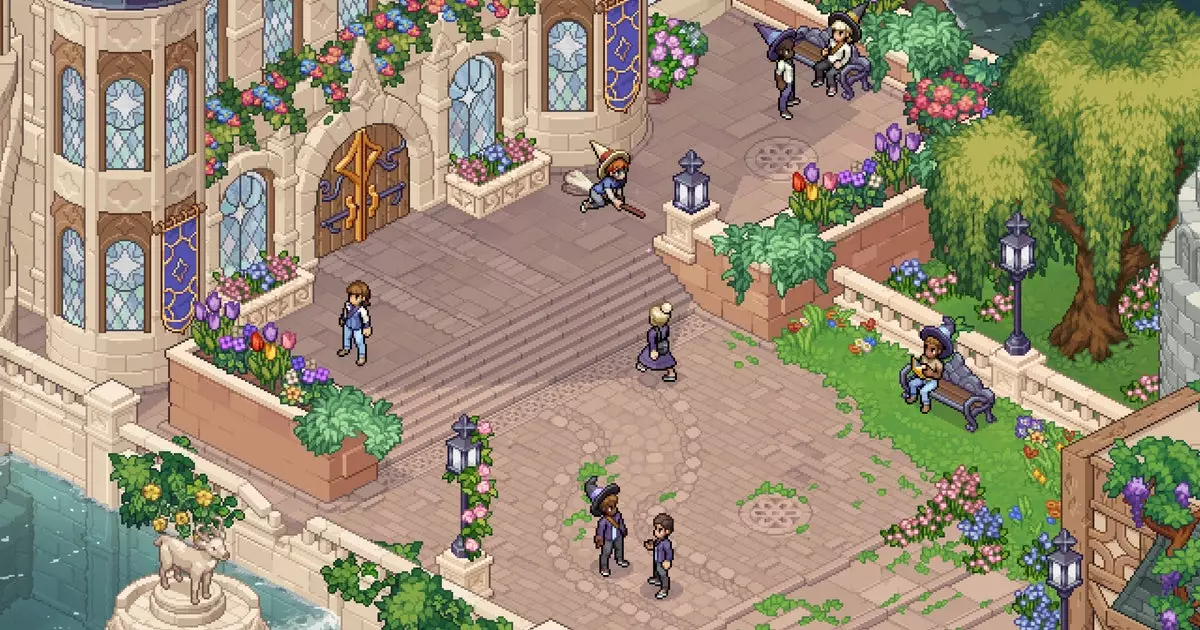Witchbrook, the newest offering from Chucklefish, beckons nostalgic souls who once indulged in fantastical tales of witches and whimsy. Drawing parallels to beloved animated classics, its gameplay resembles a merging of Kiki’s Delivery Service and modern farming sims like Stardew Valley. This delightful fusion promises not just a journey through academia but an exploration of magic itself, all wrapped within a comforting pixelated aesthetic. It’s exciting to see how a game can integrate such nostalgia while appealing to both casual gamers and indie enthusiasts alike. The vibrant visuals in the trailer coupled with engaging gameplay mechanics paint an inviting picture; however, does it truly live up to the lofty expectations set by its predecessors?
Expanding the Magic of Everyday Life
Witchbrook positions itself uniquely within the genre, as it offers players a rich school life filled with spell-casting, potion-making, and the charm of everyday tasks. As players navigate through Witchbrook College, they’ll engage in a variety of activities that feel both familiar and refreshingly innovative. From learning magic to forming a coven, the game allows for individuality in gameplay, much like the customization afforded in other life simulation games. The concept of running a witch’s cottage and forming relationships with NPCs in Mossport is particularly appealing; it enhances that sense of community which is so vital to the genre. The ability to run businesses and partake in local markets introduces an element of entrepreneurship that feels dynamic and aligns well with contemporary gaming trends.
Meeting Expectations or Creating New Ones?
As evidenced by past gamer expectations, there’s a definitive recipe for success that Witchbrook seems poised to exploit. Fans have openly voiced desires for certain gameplay elements, like the option to navigate moral dilemmas or delve deeper into the darker aspects of witchcraft. Chucklefish’s responsive development approach—drawing from platforms like Reddit or forums—could yield enhancements that transform mere enjoyment into obsession. The playful idea of letting witches break “the rules” and potentially engage in edgy antics could add an exhilarating depth that many players crave. Yet, there’s a fine line between adding layers and overwhelming players with complexity; the challenge will be balancing the whims of fandom with accessible design.
Witchbrook’s Unique Spin on Established Tropes
Questions linger about the depth of the magic system and how various spells can influence gameplay. A decision-making structure reminiscent of RPGs might allow players to weave complex storylines or alter the narrative arc based on choices made throughout the experience. This excitement surrounding Witchbrook is met with an eagerness for something simply beyond the ordinary. The possibility of exciting gameplay intertwining with personal witchcraft practices could elevate it beyond being yet another charming indie title. Rather than simply being a reimagination of earlier tropes, Witchbrook has the potential to craft a unique path for itself within the expansive universe of simulation games.
The trailer and initial concept paint a vibrant picture; however, it begs the question—will Witchbrook succeed by just riding the wave of nostalgia, or will it carve out a new narrative that celebrates the quirky richness of witchcraft and community? As we eagerly await its release in 2025, the current magical buzz hints that the game might just enchant its way into the hearts of many.

